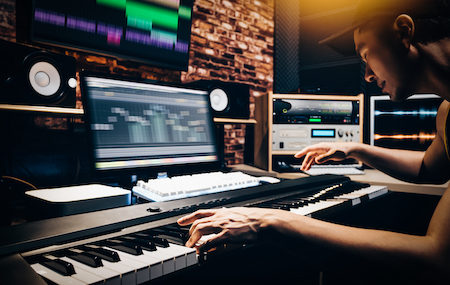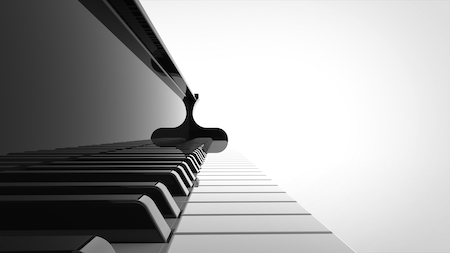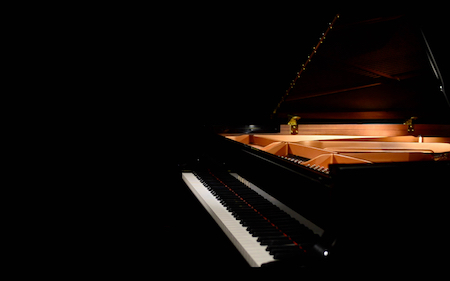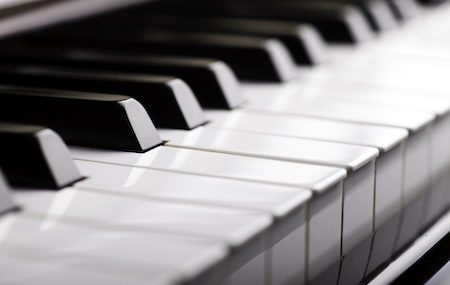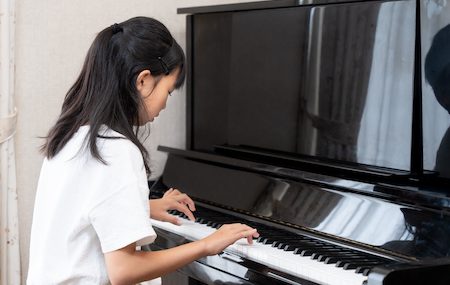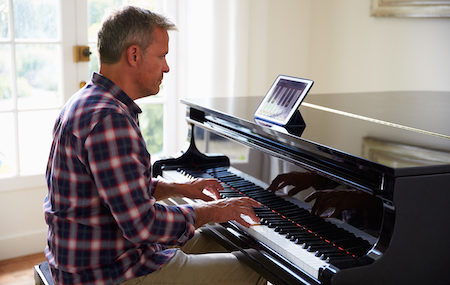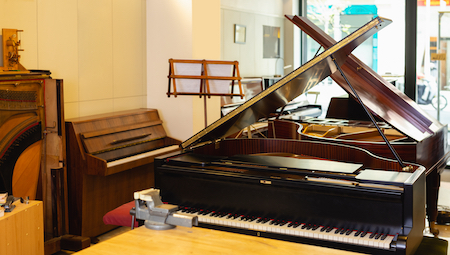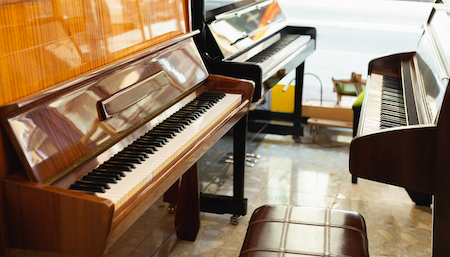Thinking of buying a new piano? You’ll quickly learn there are three different types of pianos: grand pianos, upright pianos, and digital pianos. Each type has its own unique characteristics and offers you different experiences while you play. Which is right for you?
Grand Pianos
Grand pianos are the most traditional type of piano known for their beautiful, rich sound. They are also the largest piano, with lengths ranging from 5 feet to 9 feet. The strings of a grand piano run horizontally, and the sound is projected upwards and outwards, giving it a full and resonant sound.
There are two main types of grand pianos: the concert grand and the baby grand. The concert grand is the largest and most expensive, with a length of 9 feet or more. It is designed for professional use in concert halls and is capable of producing a powerful and dynamic sound. The baby grand, on the other hand, is smaller in size (usually around 5 to 6 feet in length) and is more suitable for home use.
One of the main advantages of grand pianos is their high-quality sound. The long strings and large soundboard of a grand piano allow for a wide range of tonal colors and dynamics. They also have a more responsive touch, meaning that the pianist can easily control the volume and tone of the music.
However, grand pianos can be quite expensive and require a lot of maintenance. They also take up considerable space, which may not be practical for everyone.
Upright Pianos
Upright pianos, also known as vertical pianos, are smaller and more compact than grand pianos. They are named after the vertical orientation of their strings, which run from the top of the piano to the bottom. Upright pianos have a more focused and direct sound than grand pianos, and are suitable for smaller spaces.
There are two main types of upright pianos: the studio upright and the console upright. The studio upright is taller and has a larger soundboard, resulting in a richer and more resonant sound. The console upright is smaller and has a more compact soundboard, resulting in a more focused and controlled sound.
One of the main advantages of upright pianos is their affordability and space-saving design. They are also easier to maintain than grand pianos, as the strings and action are more easily accessible.
However, upright pianos may not have the same rich and dynamic sound as grand pianos, and the touch may not be as responsive.
Digital Pianos
Digital pianos are electronic instruments that mimic the sound and feel of a traditional piano. They use digital technology to produce sound and often have built-in speakers and a range of other features, such as different instrument sounds and the ability to record and play back music.
One of the main advantages of digital pianos is their versatility. They can produce a wide range of instrument sounds and can be easily connected to a computer or other devices for recording and editing music. They may be portable, and often require minimal maintenance.
However, digital pianos may not have the same authentic sound and touch as a traditional piano. They can be found at many price points, which makes them good contenders if you do desire a digital experience.
Which piano is right for you? It depends on your goals and needs. The difference between a grand, upright, and digital piano varies considerably. Sit down and touch and feel a wide selection today.
